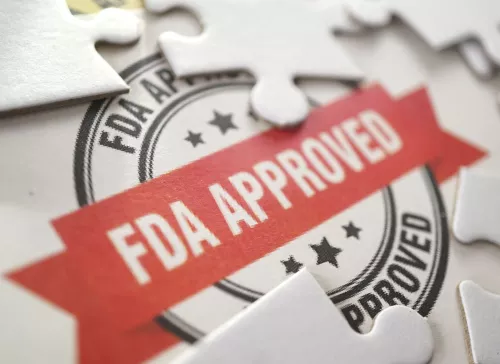
Blog post
5 recent FDA approvals to help treat kidney disease

For too long, new treatments for people with kidney disease have been few and far between. In the last year, however, we have been encouraged to see progress in innovations and treatment for people with kidney disease. Recently, five new kidney disease-related drugs have been approved by the U.S. Food and Drug Administration (FDA). While we are pleased with this progress, so much more is needed. We want to encourage continual innovation and will keep advocating for FDA approval of kidney-related treatments that patients need, as well as for payment systems that will ensure access to new and innovative drugs.
It's important for the kidney community to be aware of these recently approved medicines, so I want to take an opportunity to provide an overview of these five new drugs:
Empaglifozin
On Sept. 22, 2023, the FDA approved empagliflozin (brand name Jardiance) to help treat kidney disease in adults. Empaglifozin is a 10 mg pill that is taken every day. In clinical trials, the pill reduced the risk of decline in estimated glomerular filtration rate (eGFR), kidney failure, hospitalization and cardiovascular death (death related to a heart problem). However, there are some people with kidney disease who may not benefit from the treatment, including people who have polycystic kidney disease (PKD).
Nedosiran
For people living with primary hyperoxaluria type 1 (PH1), a rare genetic liver disease that can cause kidney stones and kidney damage, the FDA approved nedosiran (brand name Rivfloza™) on Oct. 2, 2023. This treatment is a once-monthly injection of a ribonucleic acid interference (RNAi) therapy that helps lower urinary oxalate levels. Oxalate is a natural chemical found in plants and your body and if too much of it builds up, your kidneys cannot remove it all and that can create kidney stones and calcium oxalate crystals. Over time, those can damage your kidneys and cause kidney disease. Nedosiran is approved for use in adults and children nine years old or older.
Tenapanor
Tenapanor (brand name XPHOZAH®) was approved by the FDA on Oct. 17, 2023 as a treatment for high phosphorus (hyperphosphatemia) in adults with kidney disease who are receiving dialysis treatments. Phosphorus is a mineral your body needs to work well, but too much phosphorus can be harmful. Healthy kidneys balance the phosphorus in your body by removing any extra phosphorus from your blood. If you have kidney disease, your kidneys may not remove extra phosphorus. Tenapanor is a pill taken two times a day that helps block extra phosphate from being absorbed if your kidneys are not clearing it. It is intended to be an add-on treatment if you are not responding to or cannot take phosphate binders.
Budesonide
The end of 2023 brought new hope for people with immunoglobulin A nephropathy (IgAN) when the FDA fully approved budesonide (brand name TARPEYO®) on Dec. 20. This is the first treatment for IgAN, an autoimmune disorder that causes your immune system to produce abnormal antibodies in your kidneys, which damages them and can lead to kidney disease or failure. Budesonide significantly reduced the loss of kidney function for people with IgAN. Clinical trials showed that people who took budesonide had 50% less decline in their kidney function compared to the placebo group (participants who took harmless pills without the drug).
Vadadustat
The most recent FDA approval was for vadadustat (brand name Vafseo®), which was announced on March 27, 2024. Vadadustat is approved to treat anemia in adults who have been receiving dialysis treatments for at least three months. Anemia happens when your red blood cells are not healthy enough to carry oxygen through your bloodstream and it can be debilitating for people who have it. This treatment is taken once a day and is part of a brand-new class of drugs called oral hypoxia-inducible factor prolyl hydroxylase inhibitors (HIF-PHIs) (the discovery of HIF was so important it was rewarded the Nobel Prize in Physiology or Medicine in 2019). These drugs work by helping increase red blood cell production and balance the body's response to reduced oxygen. This relieves symptoms of severe exhaustion in anemia and helps lessen anemia's impact on your heart health.
We are pleased to see this important growth in treatment innovation for the kidney community. But not every drug will work for every patient. People living with kidney disease, as well as all those at risk, deserve more options that are accessible and affordable. We hope the innovation — and approvals — will continue to progress to help the millions of people living with this life-altering disease.


